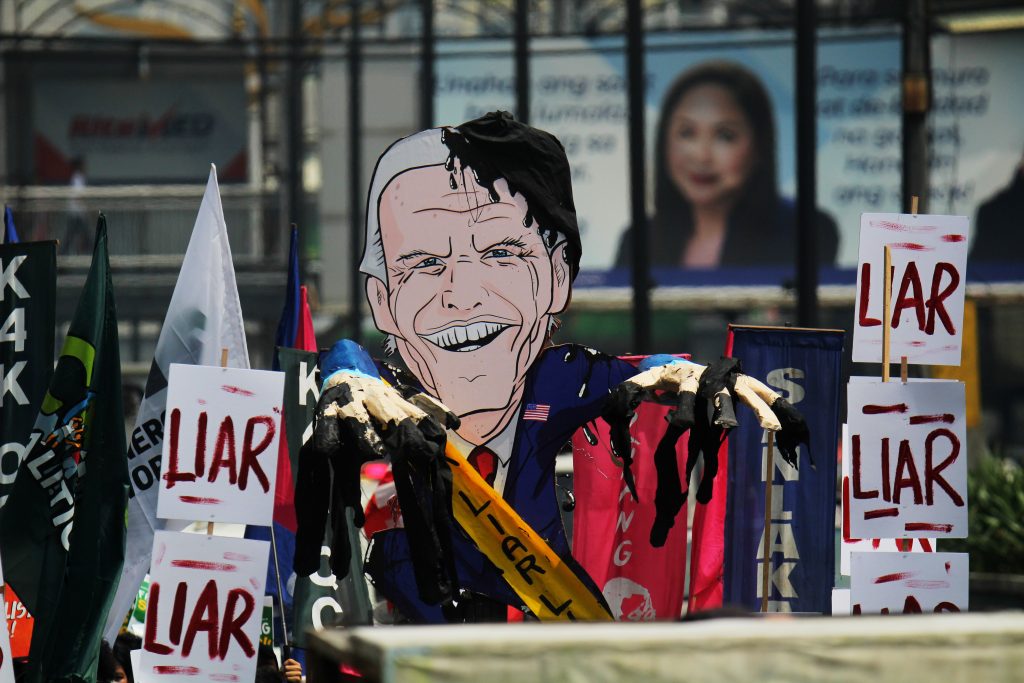Climate activists urged the U.S. government, which they described as “the biggest bully and blocker of climate action” to fulfill its climate finance obligations.
Various groups across Asia held synchronized protest rallies Friday near the U.S. embassies in Manila, Dhaka, Lahore, and Kathmandu, days before the Second Pledging Conference of the Green Climate Fund (GCF), scheduled for October 5 in Bonn, Germany.
“We are ramping up efforts to demand the Biden administration deliver its climate finance obligations to the peoples of the Global South,” said Lidy Nacpil, coordinator of the Asian Peoples’ Movement on Debt and Development (APMDD).
The activists called for the U.S. government to urgently provide adequate, non-debt-creating, unconditional, and predictable climate finance through the financial mechanisms under the U.N. Framework Convention on Climate Change.

They also rejected what they referred to as “false and highly politicized finance solutions” advanced by the U.S., including the inclusion of Multilateral Development Banks, private sector entities, and corporations in climate finance delivery.
The groups expressed opposition to the operationalization of the Loss and Damage Fund (LDF) under the World Bank, citing concerns about the bank’s track record and profit-oriented nature.
The LDF was established during the COP27 climate summit to address the demands of developing countries and communities facing the brunt of the climate crisis.
The U.S. recently proposed that the LDF be managed as a Financial Intermediary Fund (FIF) under the World Bank’s supervision, along with financing through loans from multilateral development banks (MDBs) and carbon trading.
At COP26, the U.S., along with the U.K., blocked the establishment of the LDF and dismissed discussions about liability and compensation for loss and damage.
This year, U.S. Climate Envoy John Kerry stated that the Biden administration would not provide “compensation” or “reparations” for the climate crisis.
Activists estimate that the Global South will need approximately $2.8 trillion annually in 2030 to mitigate greenhouse gas emissions and around $300 billion annually for resilience building and adaptation.